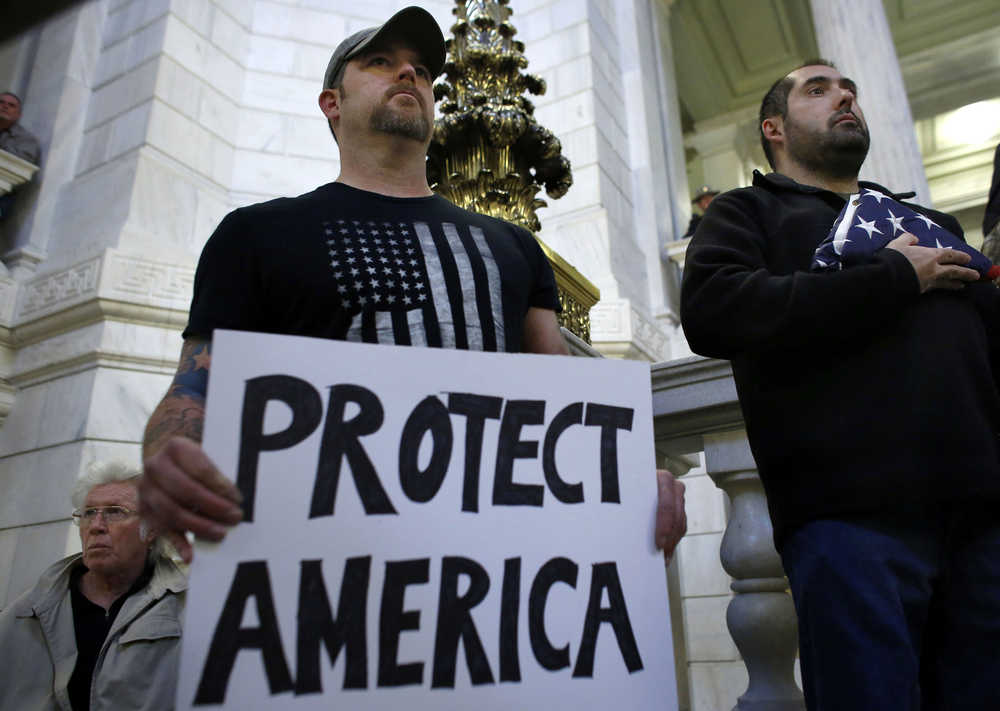WASHINGTON — Responding swiftly to the terror in Paris, the U.S. House voted overwhelmingly Thursday to erect high hurdles for Syrian and Iraqi refugees coming to American shores, dividing the president’s own party as lawmakers reflected the anxiety of voters back home.
The vote was 289-137, enough to override a threatened White House veto of the legislation, which was hurriedly drafted in response to the carnage in the streets of Paris. Forty-seven Democrats voted for the bill, despite President Barack Obama’s biting criticism of its proposed limits.
The bill would require new FBI background checks and individual sign-offs from three high-ranking U.S. officials before any refugee could come to the U.S. from Iraq or Syria, where the Islamic State group that has claimed credit for the attacks has flourished.
Republicans said it was simply prudent to place new controls on the refugee system, without ending it entirely or requiring religious tests as some in the GOP, including presidential candidates, have demanded.
“This is an urgent matter and that is why we’re dealing with this urgently,” declared new House Speaker Paul Ryan of Wisconsin. “It just is common sense that we pause, re-evaluate and make sure that we have the proper standards in place to make sure something like what happened in Paris doesn’t happen here.”
The strong vote in the House could improve prospects for the bill in the Senate. John Cornyn of Texas, the No. 2 Senate Republican, said he would like to see the chamber take up the House legislation as-is, but that is uncertain.
Senate Democrats are trying to shift the focus to other issues regarding travelers from overseas, and Minority Leader Harry Reid predicted Thursday’s bill would not be approved.
“Don’t worry, it won’t get passed. OK? So, next question,” he said.
Traveling in Asia this week, Obama mocked Congress and Republicans for yielding to “hysteria” and taking aim at “widows and orphans.” The White House threatened a presidential veto, contending the legislation would bring to an end an already highly regulated refugee program while doing nothing to enhance national security. And some Democrats complained that the measure would mar America’s image as a welcoming haven for immigrants.
“We might as well take down the Statue of Liberty,” Rep. Jerry Nadler of New York asserted in debate on the House floor.
Yet some Democrats chafed at the White House position. Dozens joined Republicans in supporting the legislation, some fretting openly of being put in the politically untenable position of opposing what they considered a reasonable anti-terror bill in the wake of a horrendous tragedy.
Freshman Rep. Brad Ashford, D-Neb., who faces a tough re-election fight next year, called the Paris attacks “a game changer” and supported the bill, saying, “I cannot sit back and ignore the concerns of my constituents and the American public.”
The White House dispatched Chief of Staff Denis McDonough and Homeland Security Secretary Jeh Johnson to Capitol Hill to meet with Democrats, but several lawmakers said their arguments were unconvincing.
Sean Patrick Maloney of New York got in a forceful exchange with Johnson inside the private meeting, telling him Democrats could lose seats over the vote, according to aides in attendance. Maloney ended up voting with Republicans in support of the legislation.
The administration, which has announced plans to accept about 10,000 Syrian refugees in addition to the 2,500 who have settled here since 2011, says it already takes around 18-24 months on average for them to make it into this country. They must pass a battery of screening requirements including interviews overseas, fingerprinting and biometric investigations. Many are women and children and only about 2 percent are single men of combat age.
The House bill would increase the FBI’s role by charging it with conducting a “thorough background investigation” on each refugee. The Homeland Security secretary would subsequently have to certify, with the concurrence of the FBI director and the director of national intelligence, that the refugee posed no security concerns. Under the current system the Homeland Security secretary has the final say, though multiple other agencies are involved.
On his way out of the meeting with Democrats Thursday, Johnson said the House measure was “a bad bill because it seeks to micromanage the process in a way that is counterproductive to national security, to our humanitarian obligations and to the overall ability of us to focus on homeland security.”
Defenders of the bill, including some Democrats, described the changes as fairly modest, especially in light of rhetoric coming from some Republican presidential contenders such as Donald Trump suggesting keeping out all refugees. Still, advocacy groups warned refugees could be left to languish while the new changes are put into place, and the Catholic bishops and others announced their opposition.
Democratic presidential candidate Hillary Rodham Clinton said the U.S. should welcome refugees from the region and bolster America’s defenses and intelligence operations.

